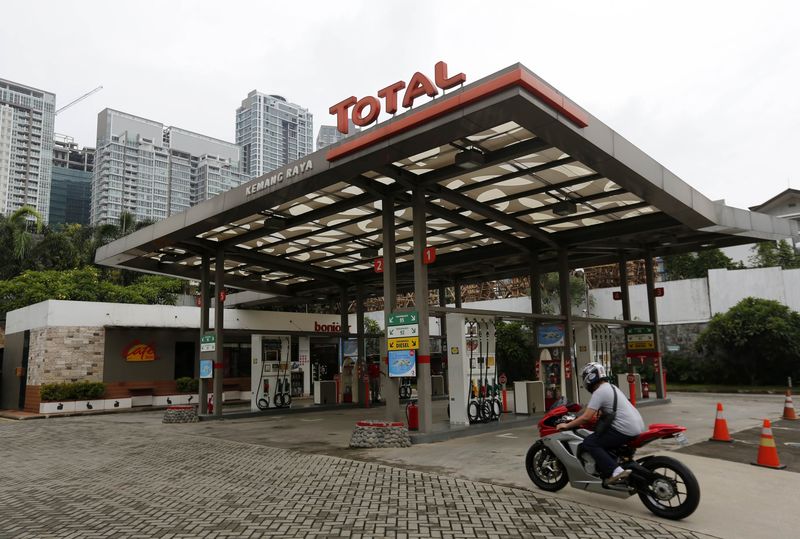By Nicholas Owen and Fergus Jensen
JAKARTA (Reuters) - Government price-fixing has largely shut them out for decades, but foreign oil companies at last see an opportunity to sell gasoline on a mass scale in Indonesia.
President Joko Widodo's scrapping of gasoline subsidies has removed one of the biggest obstacles stopping motorists filling up at pumps owned by foreign firms.
And with more than one million new cars and almost 8 million motorcycles sold yearly, Southeast Asia's biggest economy is a potentially lucrative market forecast to become the world's largest importer of gasoline by 2018.
"Of course we are looking at expansion," Emmanuel Dujeu, head of downstream operations at Frances's Total (PA:TOTF) in Indonesia, told Reuters.
State-oil firm Pertamina [PERTM.UL] has dominated sales of gasoline, also known as petrol, because subsidies meant it sold fuel cheaper than anyone else.
But Widodo's move to float prices in January changes this.
"It's going to open up a lot more opportunities for foreign players," said Suresh Sivanandam at consultancy Wood Mackenzie.
Soon after Indonesia liberalized its downstream market in 2001, Shell (L:RDSa), Total and Malaysia's Petronas opened filling stations.
But because of Pertamina's cheap prices, foreign firms' sales were limited to rich drivers, prepared to shell out for fuel that was less likely to clog their engines, and to industry, prevented by law from using subsidized fuel.
Foreign-run petrol stations had to partly rely on sales from shops on their forecourts to top up earnings.
In 2012, after nearly a decade of disappointment, Petronas sold its filling stations.
With improved prospects, Total sees a chance to grow.
"We are looking at how we could do this," Dujeu said.
Asked about Shell's plans, a spokeswoman said it regularly reviewed its fuels portfolio in countries where it operated.
Pertamina officials did not respond to requests for comment.
NOXIOUS FUEL
Indonesia is the world's eighth-largest consumer of motor petrol. In Asia, only China and Japan use more.
Pertamina accounts for about 90 percent of the 70 billion liters of fuel sold annually, while Shell and Total account for barely 10 percent between them.
Despite the removal of subsidies, Pertamina's low-grade, RON88 petrol, known locally as Premium, is still the cheapest.
However, motorists now pay a much smaller premium for buying foreign firms' RON92 petrol, and more of them are choosing it.
Crucially, market pricing means they won't suddenly find their fuel becoming relatively more expensive if oil rallies, because the state firm should raise its prices too.
Moreover, Widodo wants to phase out sales of low-grade Premium altogether in a bid to end smuggling of cheap fuel.
"As that happens, the market will become larger for the foreign players," said Kaushik Das of consultancy McKinsey.
Only Pertamina has access to RON88, because it's so noxious few refineries produce it.
"FAIR PLAY"
But ending Pertamina's near-monopoly may still be tricky and restrictions are planned on firms selling fuel, such as making them hold minimum reserves, build storage depots and open filling stations in remote places.
I Gusti Nyoman Wiratmaja Puja, the energy ministry's director-general for oil and gas, said these regulations would ensure "fair play".
But the big question right now is what the government might do when oil spikes.
Fuel prices are politically sensitive in Indonesia and nobody knows if Widodo, fearful of protests, will return to market-distorting subsidies.
Still, Asheesh Saastry at Boston Consulting Group reckons price liberalization will spark action.
"We would expect a lot more interest from the majors to increase market share."
